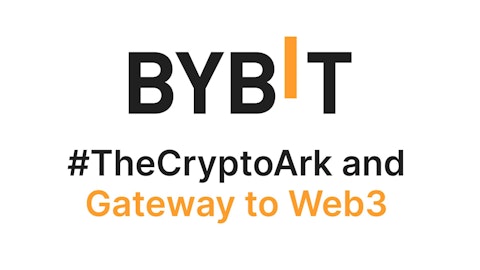We recently compiled a list of the 10 Worst Performing Solar Stocks to Buy Now. In this article, we are going to take a look at where Canadian Solar Inc. (NASDAQ:CSIQ) stands against the other solar stocks.
Solar electricity is a renewable energy source that is produced by converting sunlight into usable power. This conversion occurs either through thermal energy capture or by using photovoltaic (PV) technology in panels and glass. The resulting electricity is then integrated into power grids for distribution to homes, businesses, and industries. The core technologies include photovoltaic (PV) systems, which use diverse solar module types like monocrystalline and polycrystalline, and concentrated solar power (CSP). In 2023, the global solar power market was valued at $253.69 billion, with North America commanding a 41.30% share, as reported by Fortune Business Insights. This market is set to expand to $436.36 billion by 2032, growing at a 6% CAGR. The US is a key driver of this growth, with its market expected to reach $103.96 billion by 2032. Government incentives and the push for renewable energy support this.
The COVID-19 pandemic particularly presented a complex landscape for the global solar power industry. Initially, lockdowns and economic uncertainty caused a sharp decline in activity. In the US, for example, solar permit issuances plummeted by 32% in late March 2020 compared to early February, according to the Solar Energy Industries Association. However, the pandemic also accelerated the long-term trend towards renewable energy. Economic recovery and stimulus programs prioritized clean energy, which led to a surge in demand that exceeded pre-pandemic levels. The pandemic also exposed vulnerabilities in the supply chain. With ~70% of the world’s solar panels manufactured in China and an additional 10-15% produced by Chinese companies in Southeast Asia, the disruptions in Chinese manufacturing facilities during February 2020 significantly impacted global supply.
Currently, the solar power market is experiencing growth driven by technological advancements and supportive government policies. AI, the IoT, and big data are being integrated to enhance solar efficiency, which enables better forecasting and asset management. Notably, the US Department of Energy invested $750,000 in AI diagnostics for solar systems in 2021 and allocated $7.3 million in 2020 for AI-powered solar solutions. Global efforts to combat climate change are also leading to increased investments in the solar industry. The US plans to invest nearly $1 trillion in clean energy, including $5 billion in solar manufacturing, which will create 47 new manufacturing plants and power an additional 7 million homes. The US anticipates renewable energy will account for 26% of its energy share. Renewables account for ~29% of global electricity generation. By the end of 2021, the global installed capacity of solar PV reached 842.14 GW, making it the second-largest renewable electricity source after wind. To meet the Paris Agreement targets, the International Renewable Energy Agency and the International Energy Agency aim to achieve a 90% share of renewable electricity globally by 2030.
Methodology
We used the Finviz stock screener to compile a list of the worst-performing solar stocks with low 6-month performance. We then selected the 10 stocks that were the most popular among elite hedge funds and that analysts were bullish on. The stocks are ranked in ascending order of the number of hedge funds that have stakes in them, as of Q4 2024. The hedge fund data was sourced from Insider Monkey’s database which tracks the moves of over 1000 elite money managers.
Why are we interested in the stocks that hedge funds pile into? The reason is simple: our research has shown that we can outperform the market by imitating the top stock picks of the best hedge funds. Our quarterly newsletter’s strategy selects 14 small-cap and large-cap stocks every quarter and has returned 373.4% since May 2014, beating its benchmark by 218 percentage points (see more details here).

A fleet of solar power plants under the dazzling sun, shooting off a burst of light.
Canadian Solar Inc. (NASDAQ:CSIQ)
6-Month Performance as of February 27: -9.97%
Number of Hedge Fund Holders: 13
Canadian Solar Inc. (NASDAQ:CSIQ) provides solar energy and battery storage solutions globally through its CSI Solar and Recurrent Energy segments. It manufactures solar modules, wafers, cells, and battery storage products. It also develops, constructs, and operates solar and battery storage projects, and offers EPC and O&M services.
Its e-STORAGE segment, which develops and deploys battery and energy storage solutions, achieved a record 1.8 gigawatt hours in shipments during Q3 2024. It’s expanding with new contracts in Chile and deployment of the SolBank 3.0, which is a high-density, efficient energy storage solution. This system features high-density LFP battery cells, advanced battery management, and innovative liquid cooling, offering 5 megawatt hours of capacity per 20-foot container.
e-STORAGE is a top 10 global player and holds significant market share in key regions like the US, UK, and Canada. Its strength lies in integrated solutions which use upstream manufacturing and downstream implementation. It’s investing $300+ million in a Kentucky manufacturing facility, which aims for 3 gigawatt hours annual capacity in phase one, with plans to double it later. Canadian Solar Inc. (NASDAQ:CSIQ) projects 11-13 gigawatt hours of storage shipments for 2025, with 1 gigawatt hour allocated to its own projects.
Overall CSIQ ranks 9th on our list of the worst performing solar stocks to buy now. While we acknowledge the growth potential of CSIQ as an investment, our conviction lies in the belief that AI stocks hold great promise for delivering high returns and doing so within a shorter time frame. If you are looking for an AI stock that is more promising than CSIQ but that trades at less than 5 times its earnings, check out our report about the cheapest AI stock.
READ NEXT: 20 Best AI Stocks To Buy Now and Complete List of 59 AI Companies Under $2 Billion in Market Cap.
Disclosure: None. This article is originally published at Insider Monkey.





